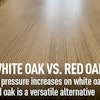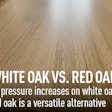When the new national formaldehyde regulations were passed, unlike as is often done with new federal regulations, no preemption was established. This means unless the regulations are modified by the government in the future, each state could potentially create their own additional certification program and standards for formaldehyde.
Currently only California has its own standard, the CARB system. It was generally hoped that when the EPA formalized their rules, that CARB and the EPA would have mutual recognition and sufficiently similar procedures and standards so that mills would not have to be double-certified.
Unfortunately, rumors are suggesting this is not going to be the case. Rumors-and again, these are only rumors and rumblings within the industry-is that CARB is going to expand its regulations regarding both the number and types of products that require certification. CARB may possibly change its testing procedures and which type of companies need to be certified. Rumors are that the certification requirements for flooring, in particular, are being targeted for expansion.
If this is the case, within a few years, it is quite possible that in order to sell within the United States generally, flooring companies will have to use certified materials or follow certain national regulations in production or purchasing. And those same companies, to sell in California, may have to be certified separately and follow yet other rules and regulations. We are heading toward a double certification system for formaldehyde: one for the nation as a whole (which of course, would need to be followed within the CA as well), and a distinct and separate program for California.
As flooring folk, we should be rightly terrified of this. But then, just as ordinary consumers, think what this would mean for the entire wood industry. The cost of raw material-plywood, MDF and OSB products-would all increase. The cost of downstream products made with these products-furniture, cabinetry, doors, etc.-would all increase. The paperwork burden for the producers would be enormous. Smaller companies would almost certainly have to pull out of the CA market, unable to bear the cost of double certification.
But an even greater fear is of another type of double certification-the required certification of downstream producers. That would likely kill most small manufacturers in all the wood industries. Right now, flooring (and furniture and cabinetry, etc.) manufacturers are required to use certified cores in their production. But what if each and every one of them had to become certified themselves in addition to buying certified cores? Setting aside the cost and time/paperwork burdens, there isn't even sufficient testing capacity in the world to sample all the production!
Generally both agencies put out their proposed regulations (or in the case of CARB, proposed changes to existing regulations) for public comment. As soon as it is done for either agency, I'll post the details here. It is important that not just manufacturers or importers look at these proposals-the consequences will impact distributors, wholesalers and retailers, as well as how we market products to consumers. Some proposals could be ones that you like. Some might be ones you hate. Whichever way you feel, your comments on these proposed regulations can make a difference and result in changes before the regulations are finalized. Certainly, the wood industry should do all that it can to prevent a future when double certification will be required for all our production.
































